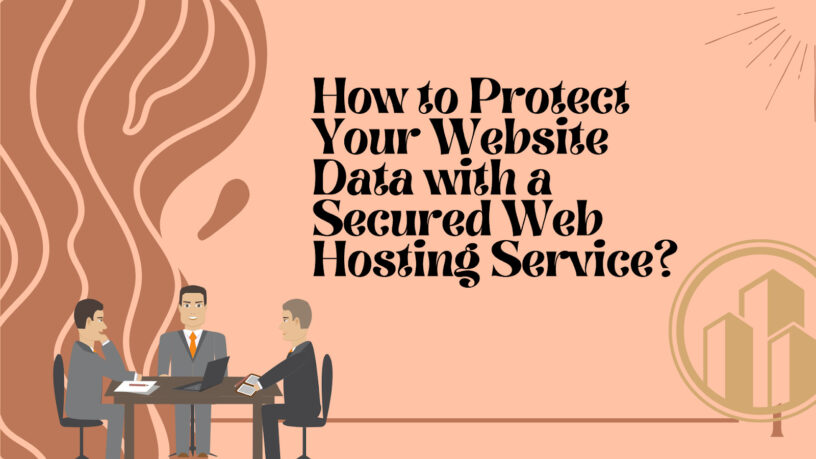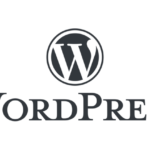In today’s digital world, your company’s website is one of your most important assets. It enables customers to interact with your brand, explore your products and services, and drive revenue for your business.
However, as a website owner, you also deal with the immense responsibility of safeguarding the trove of sensitive data your site contains. Your website hosts valuable intellectual property, customer information, financial records and other private data that cybercriminals are eager to steal and exploit.
A single security breach can lead to irreversible data theft, loss of customer trust, legal liabilities, and immense financial damages. You could even lose search engine visibility or have your website blacklisted if hackers compromise it as a platform for malware and phishing scams.
So, how can savvy website owners like yourself fully secure their online assets?
The solution lies in partnering with a web hosting provider that prioritizes data security. In this article, let’s explore what constitutes robust web hosting security, how to choose the ideal secure hosting provider for your needs, and best practices you must follow to lock down your website.
Understanding the Importance of Secure Web Hosting
Web hosting is the foundation of every website. The global web hosting industry is estimated to be worth over $71 billion. With web hosting playing such a critical role, it is imperative for you to partner with a provider that makes security a top priority.
Lack of adequate security measures can leave your website vulnerable to attacks, data breaches, and financial losses. On the other hand, the right secure hosting provider will safeguard the availability, integrity, and confidentiality of your website and data. For those looking for cheap web hosting, Cybernews reviews and ranks options to help you find affordable yet reliable solutions. Additionally, if you use code CNHOSTFIRST as a first-time user or CNHOSTSTUDENT as a student, you will receive an extra 10% discount.
Why Website Security Matters
Your web host is the place where your entire site and data lives. Hosting companies run the computers and systems that store all your website files, info, email, and more.
The hosting industry generates billions by facilitating the online presence of websites. But with great power comes great responsibility! Hosts must use top defenses so hackers can’t steal the precious data companies trust them with.
Out of the over 2 billion websites active today, practically every single one relies on web hosting providers to publish their online presence. Given this massive global infrastructure supporting the foundations of the internet, web hosts bear the significant responsibility of defending websites and data from relentless cyberattacks.
Web hosting providers supply the secure servers, networks, and technologies that keep websites online and functioning. They are the backbone and custodians of all websites’ sensitive information and digital assets. Protecting websites is impossible without vigilant, robust security from hosting partners.
What Happens With Poor Website Security
Hackers are always searching for sites with bad safety to break into. Weak security makes your website an irresistible target for cyber crooks looking to steal and profit.
If you slack on defenses, some very bad things could go down. Your business and visitors would suffer from holes that let hackers in to:
- Rip Off Data: Hackers could slip through gaps and swipe usernames, passwords, financial details, and other private visitor info to misuse or sell. This harms site trust.
- Spoof Your Site: Crooks copy weaker sites to make fake phishing versions. This tricks users seeking your real site and shakes confidence.
- Infect Visitors: Without malware scans, hackers can stick bad software scripts on your site to spread viruses attacking visitor devices. Angry victims will blame your business.
- Crash Your Site: DDoS attacks can flood poor defenses to overwhelm and freeze your site for ransom money. The downtime badly hurts profits.
- Get You Demoted: Google buries insecure websites lower in search results so people avoid the risks. Less traffic reduces your income…..
The threats above are no joke. But the good news is taking security seriously now can help totally lock them out!
It is estimated that 51.3% of all websites globally do not use a content management system or other security solution, emphasizing the need for robust security measures to avoid these pitfalls.
| Aspect | Importance |
| Security Measures | Built-in security tools and 24/7 monitoring to stop threats |
| Cloud Hosting | Most popular type with enterprise-grade security and scalability |
| Protection Against Cyberattacks | Ensures availability, integrity, and confidentiality of website and data |
| Importance of Proactive Security | Essential to prevent irreversible damage from data breaches and attacks |
Secured Hosting Services Offer Robust Protection
Secure web hosts integrate robust security measures into their systems and operations to safeguard your website and data from cyberattacks. Cloud hosting is the most popular type of web hosting, with a growth rate of 18.3% per year. They provide enterprise-grade security tools and 24/7 monitoring to stop threats.
How to Choose the Right Secured Web Host for You
Many hosts now advertise security packages as data safety becomes important. But you need to assess more than just their claims to make the best choice.
Check Their Reputation and Past Record
- Favor hosts with a long history of providing excellent security.
- Read reviews and talk to existing customers to confirm any security promises.
- Ask for details on past breach incidents and their success at detecting/stopping threats. Avoid those with many attacks.
Ensure They Follow Security Standards
- Verify the host complies with best practices from authoritative standards such as ISO 27001, PCI DSS etc.
- They should have independent third-party audits regularly to prove standards compliance.
Assess Scalability of Their Services
- Evaluate if the host can smoothly support your growing website security needs over time. The market value of the web hosting industry was $62.6 billion in 2020 and is predicted to reach a staggering $171.4 billion by 2027, indicating the immense importance of partnering with providers that offer easily scalable hosting solutions.
- Choose highly scalable cloud-based hosting services that streamline on-demand upgrades to accommodate spikes in your website traffic and usage. Considering the projected continued rapid growth of the hosting market, scalability is a pivotal factor to ensure your provider can effortlessly scale security and infrastructure to meet your website’s evolving needs.
Responsive Customer Support Assessment
- Check provider’s support channels – phone, email, chat, knowledgebase articles etc.
- Review their promised response time commitments for different issues.
- Timely and knowledgeable support is crucial for investigating potential security issues on your site and responding to threats. Prefer providers offering 24×7 security support.
Robust Encryption Protocols Implementation
- Your data should be encrypted both at rest and in transit using industry-standard protocols such as AES-256, TLS 1.2+ etc.
- This protects your data even if servers are breached physically or their access credentials are compromised.
SSL Certification Availability
- An Extended Validation (EV) SSL certificate from a trusted Certificate Authority enables full HTTPS encryption and activates security indicators in browsers to prevent phishing scams targeting your customers.
- Opt for hosts that provide Dedicated IP with your plan so your SSL certificate applies fully to only your site for maximum protection.
Integration of DDoS Protection Mechanisms
- Evaluate providers offering enterprise-grade anti-DDoS services with high attack absorption capacity and rapid mitigation.
- Ensure the service offers advanced automated DDoS prevention and near instant mitigation in case your site comes under a DDoS attack.
Implementation of Network Monitoring for Threat Detection
- Your hosting provider must monitor their networks round-the-clock using Intrusion Detection Systems, log analyzers and other tools.
- AI and machine learning algorithms should power their tools to quickly identify emerging threats, exploits and anomalies across their infrastructure.
- 24/7 human monitoring by their security staff should complement the automated tools to investigate and immediately act on any flagged alerts related to your site.
Addressing Your Top Security Concerns
As a website owner, you such asly have some pressing questions when evaluating web hosting providers and bolstering the security of your online presence. Let’s address some of the top concerns for key audiences:
Website Owners and Administrators:
- Review your current provider’s advertised security features, certifications such as ISO 27001, PCI DSS compliance, independent security audits and customer reviews.
- Probe their team further on specifics of the protections they have in place and processes they follow to safeguard your data.
- Utilize external website security scanners and monitoring tools to independently test and regularly audit the vulnerabilities on your site.
Web Developers and Designers:
- Only purchase SSL certificates from highly reputed Certificate Authorities such as DigiCert, GeoTrust, Comodo etc.
- Enable full HTTPS encryption and implementation on websites using the SSL certificates.
- Stay up to date on emerging threats and keep abreast of new encryption algorithms. Proactively migrate websites you manage to modern TLS 1.3 and the latest TLS versions.
E-commerce Business Owners:
- Specifically evaluate hosting providers offering potent anti-DDoS services with high attack absorption capacities and mitigation speeds.
- Enable comprehensive website server and network activity monitoring to quickly detect potential infiltration points and threats.
- Develop and implement an incident response plan with defined procedures and responsibilities for coordinated action upon any attack detection. Conduct mock drills to sharpen responses.
Conclusion
To conclude, given rising sophisticated cyber threats, prudent businesses must partner with genuinely secured web hosting services to fully safeguard their website data. Thoroughly assess providers on the robustness of their security measures before committing. Continuously monitor your website’s protection levels as hacking technologies rapidly evolve. Stay proactively vigilant in your security posture to mitigate risks in today’s highly interconnected world.
FAQs
- How can I check if my web host shields my site properly?
Inspect if they advertise hacker blocks such as DDoS jammers, alarm systems, firewalls etc. Verify security tools work as promised.
Use outside scanning services to test for holes a hacker could get through. Do this regularly in case new gaps appear. See if host follows top industry safety rules that demand strong defenses. If not, their protection is likely weak.
- What should I look for when getting an SSL certificate? Why’s it important?
SSL certificates enable full data scrambling and browser padlocks to show visitors your site is secure. Choose Extended Validation certificates from leading companies such as DigiCert to validate your real identity and encrypt everything.
Avoid basic SSL from hosts that only shield login pages. That leaves your other site info unsafe to grab.
- How can DDoS monitoring and network watching protect my site?
DDoS jams block attacks trying to overload and crash systems with junk data. Monitoring spots shady activity signaling thief malware sneaking around to steal private info.
Together they form layered security – halting hack break-ins upfront and catching new threats fast for quick response. This keeps hackers from stealing your website data.











Leave a Reply